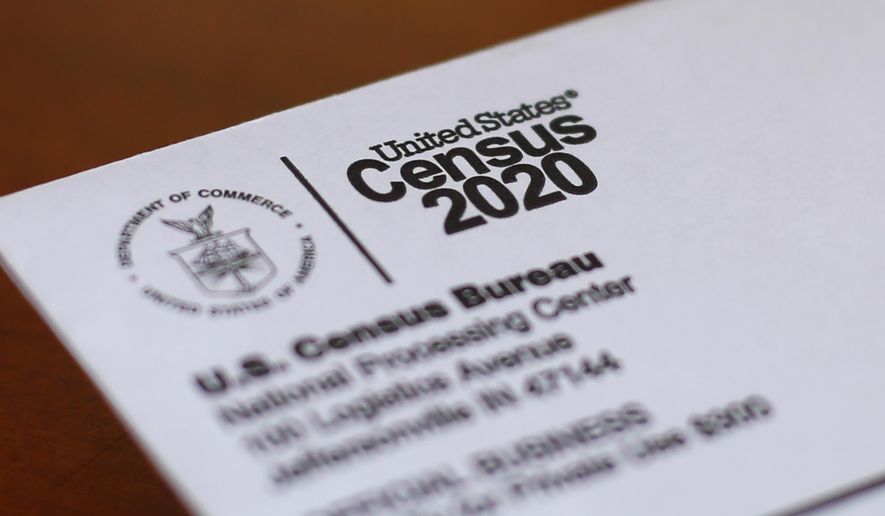The Census Bureau has begun asking Americans about sexual orientation for the first time as part of a battery of surveys it is doing to measure social changes during the coronavirus pandemic.
Known as the Household Pulse Survey, the questionnaire is helping researchers figure out how Americans’ education and work life have changed, and how their finances and mental health are holding up.
The surveys have been conducted on a fairly regular basis since early in the pandemic, but questions about sexual orientation and gender identity were added July 21, the bureau said in a memo Thursday.
One question asks, “What sex were you assigned at birth on your original birth certificate?” with answers of Male or Female.
Another asks, “Do you currently describe yourself as male, female or transgender?” with available answers of Male, Female, Transgender or None of these.
And another question asks “Which of the following best represents how you think of yourself?” with answers of Gay or lesbian; Straight, that is not gay or lesbian; Bisexual; Something else; I don’t know.
Census surveys have probed sexual orientation in less direct ways in the past, with questions about those living with same-sex partners, but the bureau said this is the first time a Census Bureau-sponsored survey has included the specific questions.
The first results from the new questionnaire are scheduled to be released Aug. 11.
The survey has previously asked about vaccinations and vaccine hesitancy, but it now includes questions aimed at children ages 12 to 17, who are eligible for vaccination.
It also asks about household energy use, and children’s activities during their second COVID-19 summer.
Private polling firms and academic surveys have asked about sexual orientation before, but they lack the reach of the census.
Including the questions on the Pulse survey will likely pave the way for inclusion in broader surveys in the future.
The bureau had issued a notice earlier this summer that it was pushing to add the sexual orientation questions.
Pulse surveys sample more than a million people in each block, with responses of between 60,000 and 80,000 a week.
The previous round of Pulse data led Census Bureau researchers to conclude that more Asian households were going hungry than White households because Asians were more afraid of going out amid the pandemic.
The survey could not, however, identify whether that fear stemmed from worries over crime, lack of options or specific health concerns.
• Stephen Dinan can be reached at sdinan@washingtontimes.com.




Please read our comment policy before commenting.